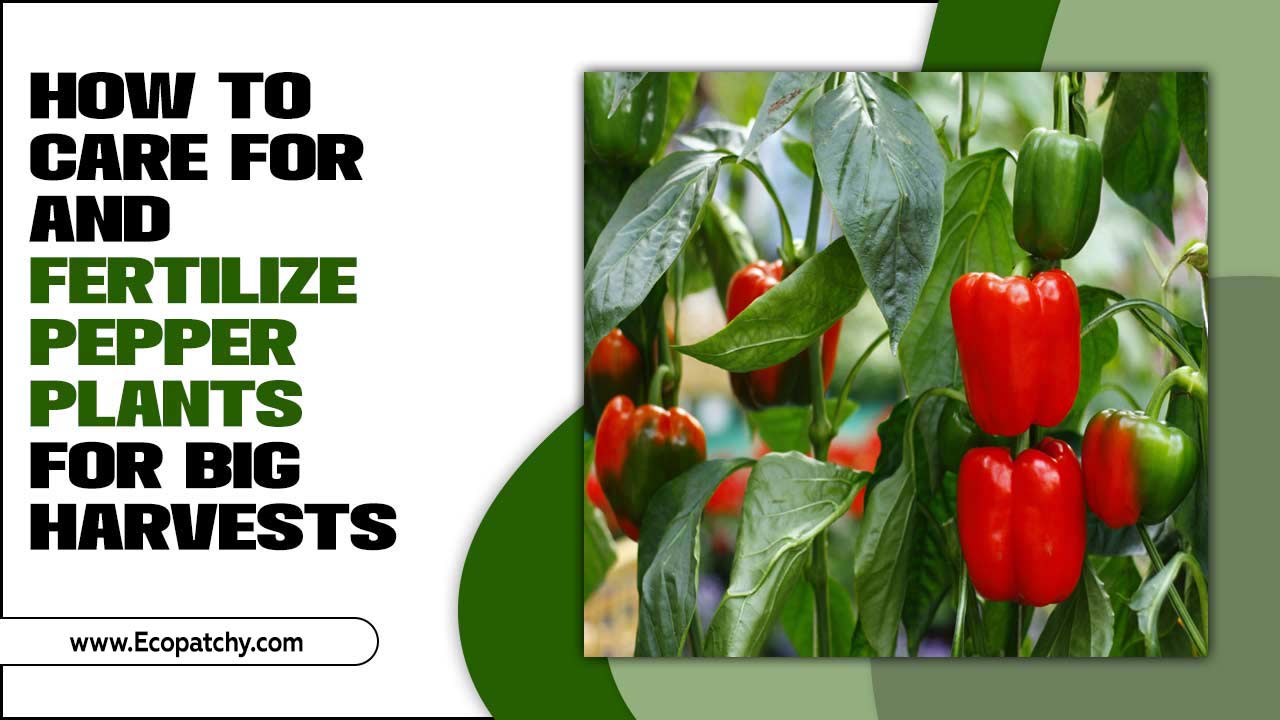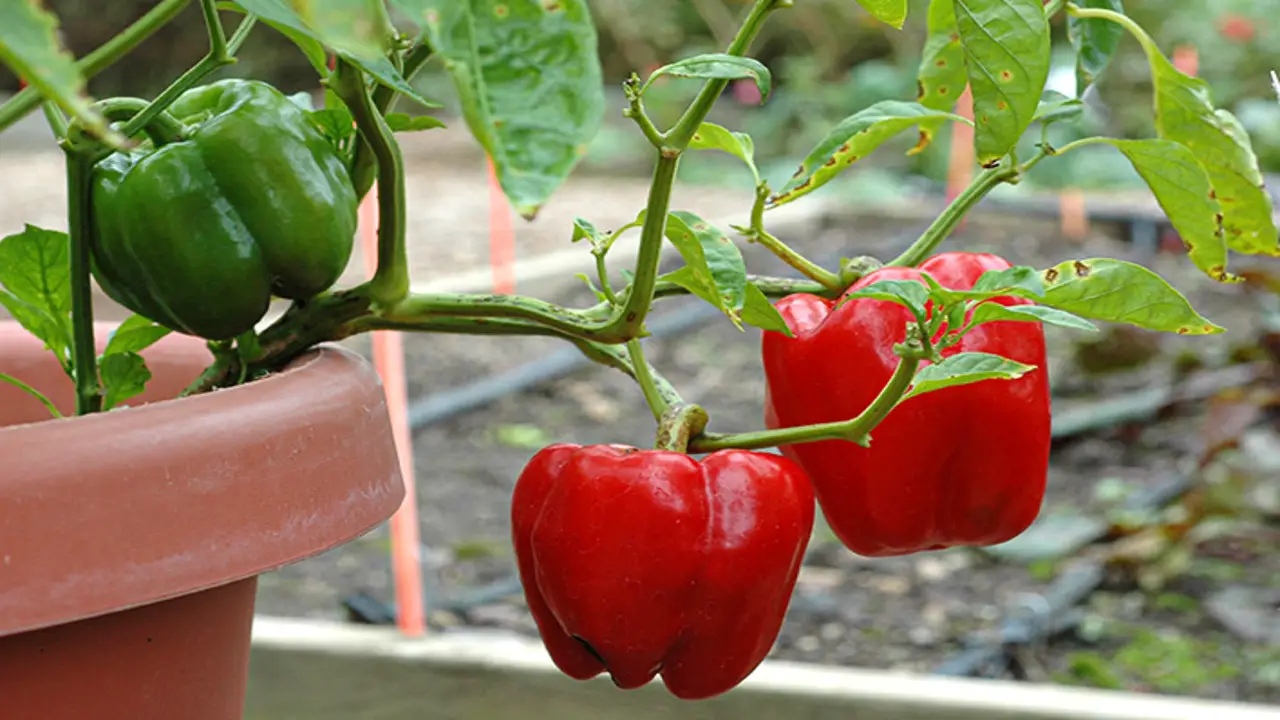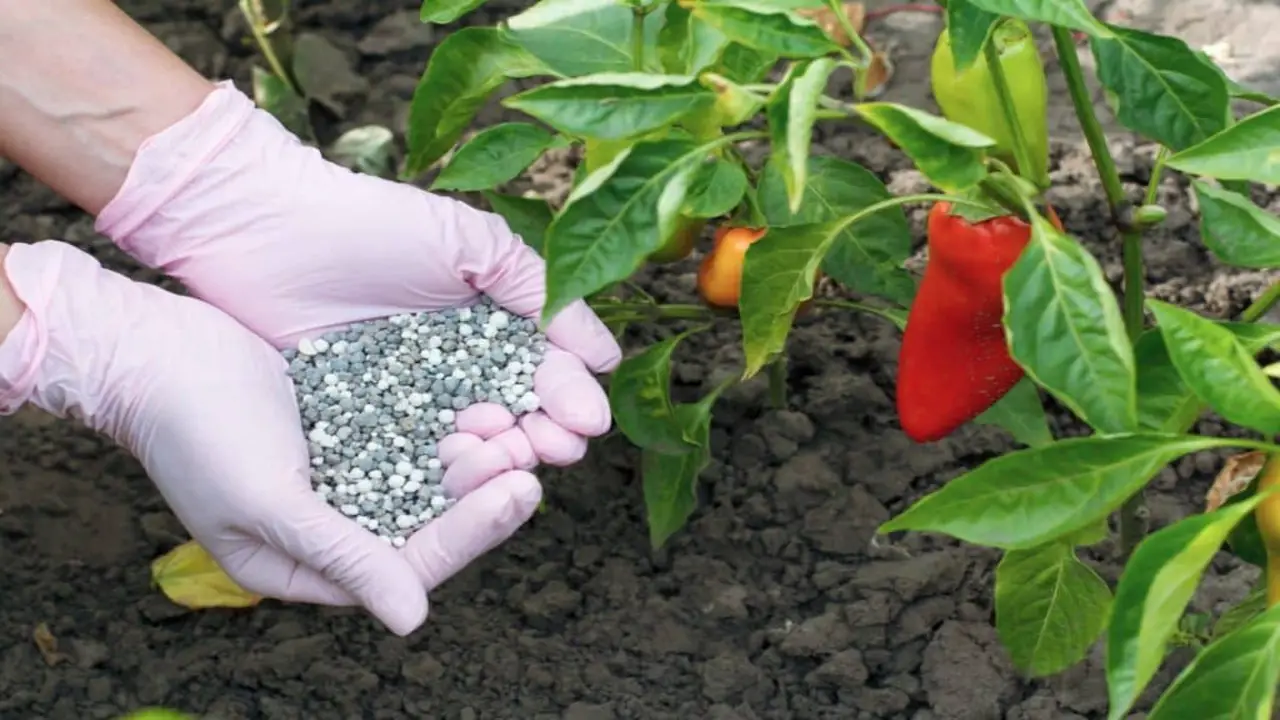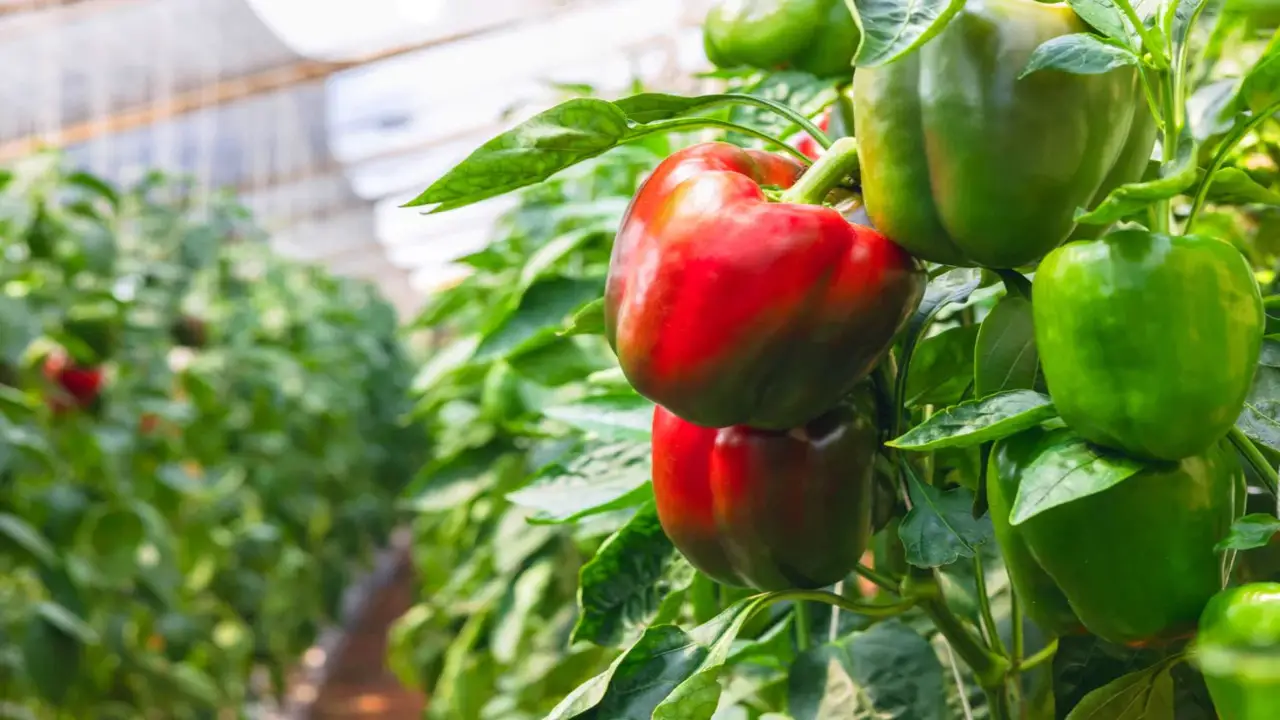Pepper plants are popular for home gardeners due to their versatility and delicious fruit. Whether you are growing bell peppers, chili peppers, or any variety in between, caring for and fertilizing your plants properly is essential for a bountiful harvest.
However, with so many different methods and products available, it can be overwhelming to know where to begin. We will provide all the information you need to successfully care for and fertilize your pepper plants, leading to big and flavorful harvests.
From understanding the unique needs of pepper plants to selecting the right fertilizers and techniques, How to care for and fertilize pepper plants for big harvests we will cover it all clearly and concisely. Whether you are a seasoned gardener looking to up your pepper game or a beginner wanting to learn the basics, this article will be your go-to resource for growing healthy and productive pepper plants.

Essential Nutrients For Bell Pepper And Hot Pepper Plants
Proper care and fertilization are essential for ensuring healthy growth and abundant bell pepper and hot pepper plant harvests. These plants have specific nutrient requirements that must be met to thrive. Here are the essential nutrients that bell pepper and hot pepper plants need:
- Nitrogen (N): Nitrogen is necessary for promoting leafy growth and overall plant development. It helps in the production of chlorophyll, which is vital for photosynthesis.
- Phosphorus (P): Phosphorus is important for root development, flowering, and fruiting. It aids in energy transfer within the plant and supports the formation of strong, healthy fruits.
- Potassium (K): Potassium is crucial for plant health as it helps regulate water uptake, strengthens cell walls, enhances disease resistance, and improves overall fruit quality.
- Calcium (Ca): Calcium plays a key role in preventing blossom end rot, a common disorder that affects pepper plants. It also aids in cell division and proper nutrient uptake.
- Magnesium (Mg): Magnesium is involved in chlorophyll production and helps activate enzymes required for photosynthesis. It contributes to healthy foliage and fruit development.
You can use a balanced fertiliser specifically formulated for vegetables or peppers to ensure your bell pepper and hot pepper plants receive these essential nutrients. Apply the fertilizer according to the instructions on the package, taking care not to over-fertilize as this can lead to nutrient imbalances or burn the plants. Regularly monitoring your plants’ nutrient needs will help you achieve big harvests of delicious peppers.
How To Care For And Fertilize Pepper Plants For Big Harvests? 6 Easy Ways

Caring for and fertilizing pepper plants is essential for achieving big harvests. Following these care and fertilization practices, you can ensure healthy pepper plants and bountiful harvests of delicious peppers. Here are six easy ways how to care for and fertilize pepper plants for big harvests:
Create An Optimal Growing Environment
To ensure the optimal growth of pepper plants, creating an environment that meets their specific needs is crucial. Providing adequate sunlight is essential for photosynthesis, which is the process that allows plants to convert sunlight into energy.
Maintaining proper soil moisture is also important to prevent wilting or waterlogging while ensuring good drainage helps avoid root rot. Controlling pests and diseases is necessary to keep the plants healthy, and mulching around them can suppress weeds and conserve moisture. These steps allow gardeners to create an ideal growing environment for their pepper plants.
Choose The Appropriate Fertilizer
When caring for and fertilizing pepper plants for big harvests, it is crucial to choose the appropriate fertilizer. A balanced fertilizer is a great option as it promotes overall plant health. Look for fertilizers specifically formulated for pepper plants, as they contain the essential nutrients they need. Organic fertilizers are recommended to improve soil quality and support long-term plant growth.
Consider using slow-release fertilizers to ensure extended nutrient availability. Always follow the manufacturer’s instructions for proper application rates to avoid over- or under-fertilization. Choosing the right fertilizer can give your pepper plants the necessary nutrients for healthy growth and a bountiful harvest.
Use The Right Amount Of Fertilizer

To ensure the optimal growth and health of your pepper plants, using the right amount of fertilizer is crucial. Over-fertilization can be detrimental, causing damage to the plants and leaching excessive nutrients into groundwater. Instead, apply fertilizer based on the specific needs of your peppers. Consider soil test results to determine the appropriate amounts of fertilizer required.
Additionally, adjust the quantities of fertilizer based on the plant’s growth stage and nutrient requirements. Monitoring the plant’s response to fertilizer application and making necessary adjustments is important. Using the right amount of fertilizer can promote healthy plant growth and ensure a bountiful harvest.
Test The Soil Before Fertilizing
Before fertilizing your pepper plants, it’s essential to test the soil to ensure they receive the right nutrients for optimal growth. Conducting a soil test allows you to determine the nutrient levels and identify any potential deficiencies or imbalances.
NPK soil testing kits are recommended for assessing nitrogen, phosphorus, and potassium levels, which are crucial for plant growth. Additionally, consider testing for secondary and micronutrients that play a vital role in the overall health of your plants. By conducting a soil test, you can tailor your fertilizer application to meet the specific nutrient needs of your pepper plants, ensuring a healthy and bountiful harvest.
Apply Fertilizer During Flowering And Fruiting
During pepper plants’ flowering and fruiting stages, it is crucial to provide additional nutrients to support their growth and development. Applying fertilizer at this stage ensures the plants have a continuous supply of nutrients for optimal fruit production.
Liquid fertilizers are recommended during this time as they are quickly absorbed by the plants, making the nutrients readily available. Following the recommended fertilization schedules for your specific pepper plant varieties is also important. By doing so, you can ensure that your plants receive the right amount of nutrients at the right time, resulting in healthy plants and a robust harvest.
Monitor Plant Growth And Adjust Fertilizer Accordingly

Monitoring the growth of your pepper plants is essential for ensuring a big harvest. As your plants grow, their nutrient needs may change, so adjusting your fertiliser accordingly is important. One way to monitor plant growth is by keeping track of the size and health of the leaves. If the leaves are vibrant and healthy, it’s a good sign that your plants are getting the nutrients they need.
However, if the leaves appear pale or yellowish, it may indicate that they need more fertilizer. In this case, you can increase the frequency or dosage of fertilization to give your plants the necessary nutrients for optimal growth. Regularly monitoring and adjusting your fertilizer regimen will help your pepper plants thrive and produce abundant harvests.
The Benefits Of Using Organic Fertilizers
Using organic fertilizers for your pepper plants can have numerous benefits. Here are some of the key advantages:
- Environmentally-Friendly: Organic fertilizers are made from natural sources, such as compost, manure, and plant-based materials. They do not contain synthetic chemicals or harmful additives that can harm the environment or contaminate groundwater.
- Improved Soil Health: Organic fertilizers help build and improve your soil’s overall health. They enrich the soil with essential nutrients and promote beneficial microbial activity, enhancing soil structure, fertility, and water retention.
- Slow-Release Of Nutrients: Organic fertilizers release nutrients slowly over time, providing a steady supply of nourishment to your pepper plants. This ensures they receive a consistent and balanced diet, promoting healthy growth and development.
- Enhanced Flavor And Nutrition: By using organic fertilizers, you can enhance the flavor and nutritional value of your peppers. The plants readily absorb natural nutrients in organic fertilizers, resulting in more flavorful and nutrient-rich harvests.
- Long-Term Sustainability: Using organic fertilizers supports sustainable farming practices. It reduces reliance on synthetic chemicals and promotes a healthier ecosystem by preserving biodiversity, minimizing pollution, and improving soil quality for future generations.
By opting for organic fertilizers, you can achieve big harvests and contribute to a more sustainable and environmentally-conscious approach to gardening.
Conclusion
To ensure big harvests of bell and hot peppers, providing them with the right care and fertilization is crucial. The key factors to consider are creating an optimal growing environment, choosing the appropriate fertilizer, and using the right amount.
Testing the soil before fertilizing, applying fertilizer during flowering and fruiting, and monitoring plant growth are essential steps to maximize pepper plant growth. Additionally, using organic fertilizers offers numerous benefits for plants and the environment. By following these tips and providing proper care, you can enjoy bountiful harvests of healthy and delicious peppers.
Frequently Asked Questions
1.How Do You Fertilize Peppers For Maximum Yield?
Ans: To fertilize peppers for maximum yield, use a balanced fertilizer containing equal nitrogen, phosphorus, and potassium. Apply the fertilizer evenly around the base of the plant, avoiding direct contact with the stem or leaves. Fertilize every 4-6 weeks during the growing season to promote healthy growth and fruit production. Avoid over-fertilizing as it can lead to excessive foliage and reduced fruit production.
2.Should You Fertilize Pepper Plants When Fruiting?
Ans: It is important to continue fertilizing pepper plants during fruiting. Use a balanced fertilizer with equal nitrogen, phosphorus, and potassium. Avoid over-fertilization for optimal fruit production. Apply fertilizer every 4-6 weeks throughout the growing season.
3.What Is The Best Fertilizer For Fruiting Peppers?
Ans: The best fertilizer for fruiting peppers contains equal amounts of nitrogen, phosphorus, and potassium, also known as a balanced fertilizer. This helps promote healthy growth and enhances fruit production.
4.How Often Should You Fertilize Pepper Plants?
Ans: Pepper plants should be fertilized every 4-6 weeks during the growing season. This helps provide the necessary nutrients for healthy growth and maximum yield.
5.How Should I Fertilize My Pepper Plants During Flowering And Fruiting?
Ans: During flowering and fruiting, use a balanced fertilizer with equal amounts of nitrogen, phosphorus, and potassium. Apply the fertilizer evenly around the base of the plant, avoiding direct contact with the stem or leaves. Fertilize every 4-6 weeks to support healthy growth and optimal fruit production.






